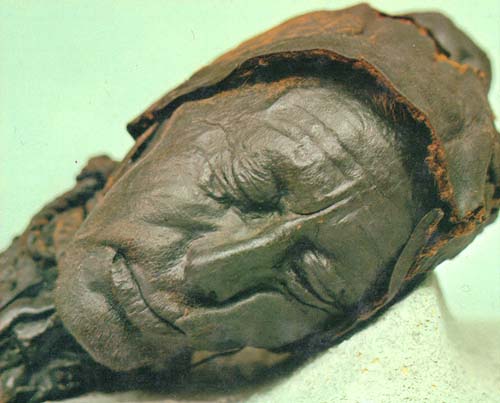Then I entered a strongroom of vocabulary
Where words like urns that had come through the fire
Stood in their bone-dry alcoves next a kiln
And came away changed, like the guard who'd seen
The stone move in a diamond-blaze of air
Or the gates of horn behind the gates of clay.
I
The
soils I knew ran dirty. River sand
Was the one clean thing that stayed itself
In that
slabbery,
clabbery, wintry, puddled ground
Until I found Bann clay. Like wet daylight
Or
viscous satin under the felt and frieze
Of humus layers. The true
diatomite
Discovered in a little
sucky hole,
Grey-blue, dull-shining, scentless, touchable -
Like the earth's old ointment box, sticky and cool.
At that stage you were swimming in the sea
Or running from it, luminous with plankton,
A nymph of phosphor by the
Norder Zee,
A vestal of the goddess Silica,
She who is under grass and glass and ash
In the
fiery heartlands of
Ceramica.
We might have
know each other then, in
that
Cold gleam-life
under ground and off the water.
Weird twins of
puddle, paddle, pit-a-pat,
And might have done the small forbidden things -
Worked at mud-pies or gone to high in swings,
Played 'secrets' in the hedge or 'touching tongues' -
But did not, in the terrible event.
Night after night instead, in the Netherlands,
You watched the bombers kill; then, heaven sent,
Came backlit from the fire through war and wartime
And ever after, every blessed time,
Through glazes of
fired quartz and iron and lime.
And if glazes, as you say, bring down the sun,
Your potter's wheel is bringing up the earth.
Hosannah ex infernis. Burning wells.
Hosannah in clean sand and kaolin
And, 'now that the rye crop waves beside the ruins',
In ash-
pitts, oxides, shards and chlorophylls.
2 After liberation
i
Sheer, bright-shining spring, spring as it used to be,
Cold in the morning, but as broad daylight
Swings open, the everlasting sky
Is a marvel to survivors.
In a pearly clarity that bathes the fields
Things as they were
come back; slow horses
Plough the fallow, war rumbles away
In the near distance
To have lived it through and now be free to give
Utterance, body and soul - to wake and know
Every time that it's gone and gone for good, the thing
That nearly broke you -
Is worth it all, the five years on the rack,
The fighting back,
the being resigned, and not
One of the unborn will appreciate
Freedom like this ever.
from the Dutch of J.C. Bloem (1887-1966)
Seamus Heaney,
The Spirit Level, Faber & Faber, 1996.

